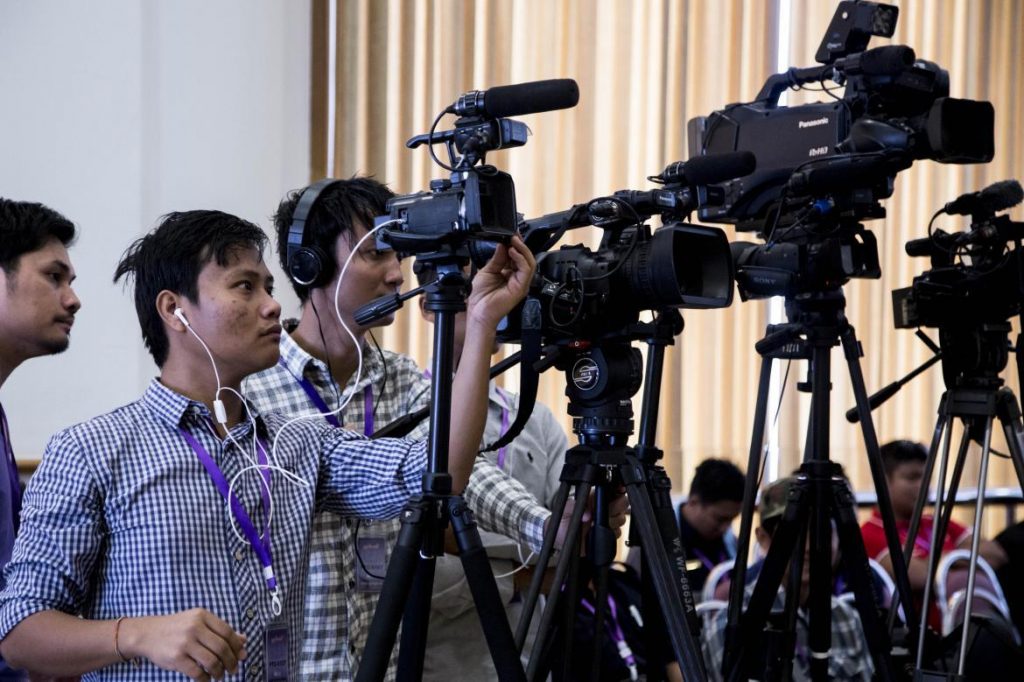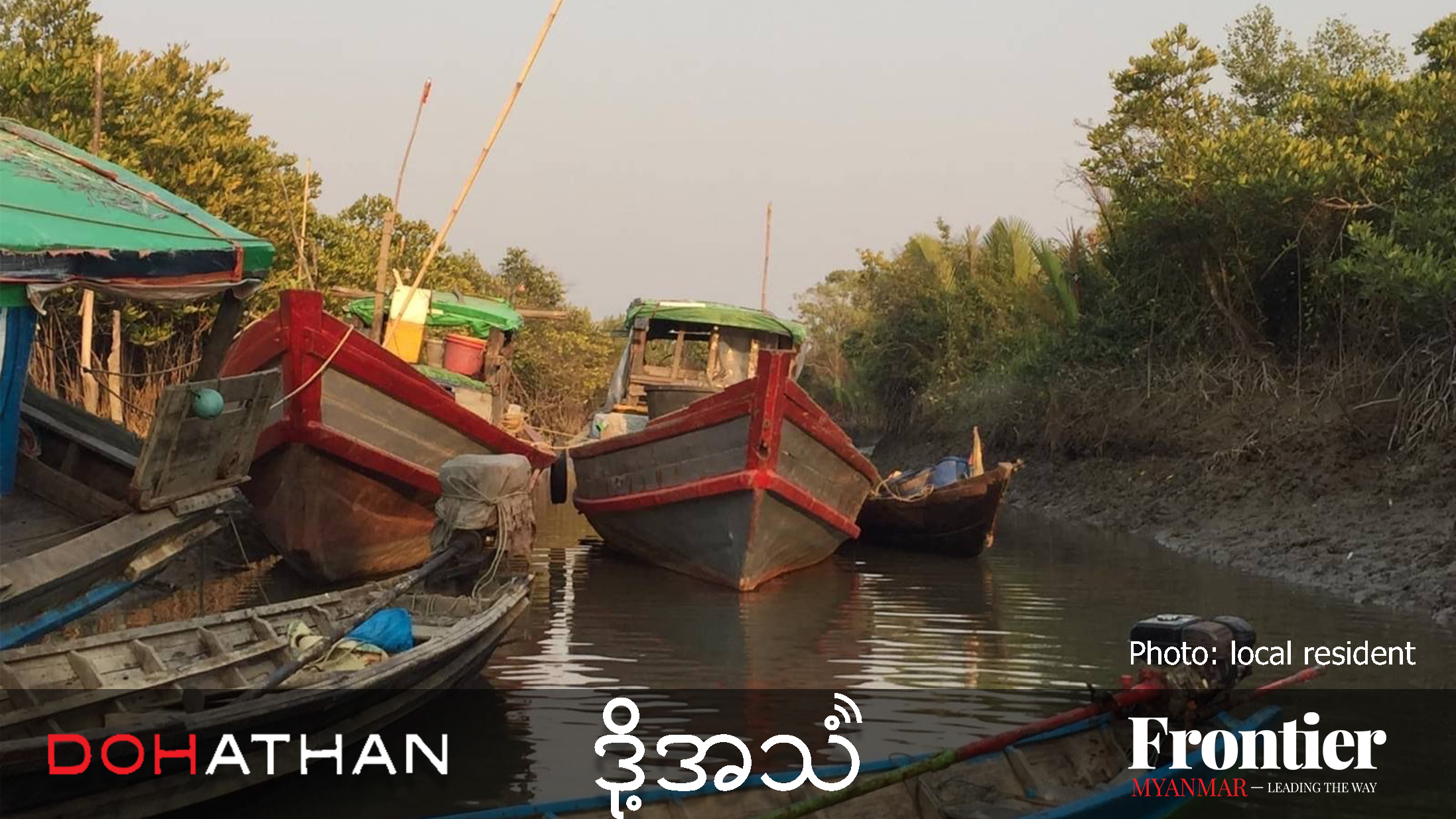By KYAW YE LYNN | FRONTIER
YANGON — The BBC has ended a deal under which its Myanmar-language content was rebroadcast on Myanmar National Television, after the private channel refuse to air some of its recent packages on events in Rakhine State.
Although MNTV says the break-up came about because some BBC programming violated “state policy”, the government has denied pressuring the broadcaster to cut controversial segments from BBC bulletins.
In a statement announcing the decision on Sunday night, the BBC said MNTV had frequently breached the terms of their agreement over the past six months.
BBC World Service Group director Ms Francesca Unsworth said the organisation could not allow any interference in its programming and described the problems with MNTV as “a serious breach of trust with our audiences”.
Support more independent journalism like this. Sign up to be a Frontier member.
“We have experienced interference in our news bulletins since March and reminded MNTV that this breached their broadcasting agreement,” Unsworth said.
“Since this interference continued, the BBC had no alternative but to end the partnership with immediate effect.”
MNTV is a free-to-air channel owned by Shwe Than Lwin Media. The company enjoyed close links with both the military government and U Thein Sein’s administration; in 2010 the junta granted it a licence for its Skynet satellite TV service, giving it a monopoly in the market.
Under the agreement inked between the BBC and Shwe Than Lwin in April 2014, MNTV committed to airing a 10-minute BBC programmed of regional and international coverage.
A senior editor at MNTV told Frontier that it had “temporarily postponed” broadcasting BBC programmes on August 30.
“The decision came from the top management,” the editor said on condition of anonymity.
He added that the BBC’s use of the word “Rohingya” in its programming was one of the reasons.
“In addition to that controversial term, some news on the current situation in Rakhine State was considered against state policy,” he said on Monday morning.
But U Naing Kyaw, a senior general manager at MNTV, said his organisation would only resume airing BBC programmes if the globally renowned broadcaster toned down its coverage Rakhine.
“We are not broadcasting any programme that goes against the policy of the state and government,” he told Frontier.
The disagreement comes after the Arakan Rohingya Salvation Army launched coordinated attacks on 30 police outposts and a military base in northern Rakhine State on August 25. The Tatmadaw launched clearance operations in response and 87,000 people have fled across the border to Bangladesh, the United Nations said today. The government has declared ARSA a terrorist organisation and warned that anyone deemed to be supporting the group will face prosecution.
The dispute between the BBC and MNTV also reflects the divergent coverage in local and international media outlets of the crisis in the state. While international media focuses more heavily on the suffering of the state’s Muslim community, most local media hews closer to the position of the military and the government, and has given extensive coverage to ARSA attacks on non-Muslims in the area.
Ministry of Information director U Myint Kyaw said the government had not complained to MNTV over the BBC programming.
“We have nothing to do with this,” he told Frontier by phone on Monday. “If there any issues we have to complain about, we will go to the Press Council first.”
Myanmar Press Council confirmed that it had not received a complaint from the government.
Council member U Myint Kyaw said the dispute seemed to be between the broadcasting partners over the terms of their agreement.
“We don’t know what’s in the agreement so we can’t say which side has breached it,” he said.
Audiences can continue to access BBC Burmese content at bbcburmese.com, as well as through its Facebook page, YouTube channel and radio service.







